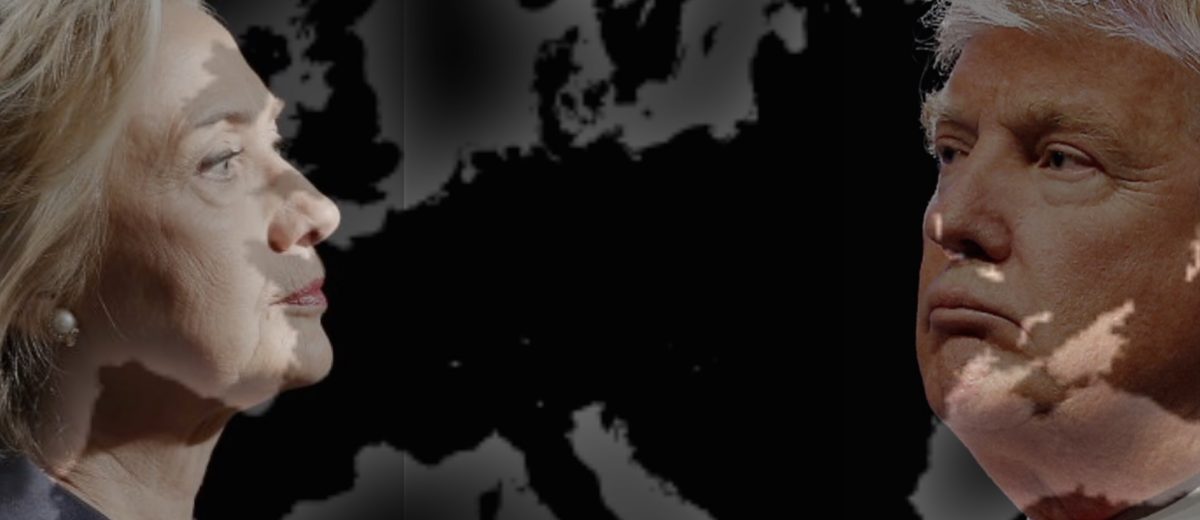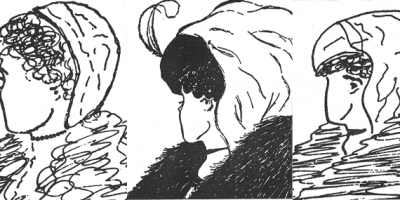As Americans go to the voting booths tomorrow to choose the candidate they hate the least, we in Europe need to brace ourselves for the outcomes.
Until now, we have avoided this topic in Weekly Word as our focus in this column is Europe. But as the outcome is now imminent, we need to face the reality that whatever result we and the rest of the world wake up to on Wednesday morning, we will all be affected.
One of the lop-sided facts of our lop-sided world is that less than one per cent of the world’s population (about half of the 130 million American voters who will turn out tomorrow) gets to choose the person who will occupy the world’s most powerful office.
The not-so-good-news is that Hillary Clinton will become the next White House incumbent if she maintains her now-slender lead. But the really-bad-news is that Donald Trump could still possibly pull off an upset.
The tough choice the voters face is between the devil they know or the devil they don’t know–at least in a political role. Both candidates ‘enjoy’ an almost unprecedented low level of approval (-9 for Clinton, -21 for Trump). Both have reputations of being untrustworthy, untruthful, ruthless, and self-seeking. A measure of how far standards have fallen is that many millions who never thought they’d ever want to see a Clinton back in the White House are desperately wanting just that!
Escalation
Yet suppose for one horrific moment we turned on the morning news in about 48 hours and discovered that a Brexit-style upset had favoured yet another blond-mopped clown. The consequences for us on the Old Continent could be very grave! As on June 24, there would be rejoicing in the offices of Le Pen in France, Wilders in Holland, Farage in Britain, Orban in Hungary… and the vodka would be flowing in the Kremlin in Moscow. Populism, nationalism, isolationism and demogoguery* would have won over the values of reason, respect, solidarity, dignity and servanthood. And the world would take a further backwards step towards instability. [*My laptop dictionary defines this word as: a political leader who seeks support by appealing to popular desires and prejudices rather than by using rational argument.]
Last week I was in the Baltics where there is grave concern about Trump’s admiration for Putin and his alarming statements about not necessarily providing military assistance to Estonia, Latvia, and Lithuania in the event of a Russian invasion. Although NATO’s treaty declares that an attack on one member is an attack on all members, Trump said support would depend on whether those under attack had fulfilled their financial obligations to the alliance, including a pledge by each country to spend at least 2 percent of its GDP on defense by 2024. Presently, only five of 28 NATO members—among them the US, the UK, and Estonia—are hitting that target.
Such remarks can only risk further escalation of Russian adventurism and aggression that has already happened under Obama’s ‘lead from behind’ foreign policy. An America that withdraws further into an isolationist mindset is likely to increase the possibility of a ‘land-for-peace’ scenario like the infamous Munich Agreement of 1938 between Britain, France and Nazi Germany concerning Sudetenland in Czechoslovakia, where many Germans were living. Only this time it would involve the Baltics where sizable Russian minorities live (about 24 percent in Estonia, 27 percent in Latvia and 6 percent in Lithuania).
In fact, the British general Richard Shirreff, NATO’s former deputy supreme allied commander in Europe, has written a novel, 2017: War With Russia, warning of a possible Ukraine-style military incursion into Latvia by her eastern neighbour next year, thereby destabilizing the entire Baltic region, raising the spectre of nuclear war, and threatening the 70-year-old NATO alliance itself.
Unthinkable
Putin’s unabashed aim is to destabilise and divide a Europe which continues to carry out sanctions against his regime following the Crimean invasion. Trump has even suggested that, as president, he might recognize Crimea as Russian territory. His comments have emboldened Putin in an unprecedented cybercampaign to disrupt elections in the US and in other countries, as confirmed by numerous Western intelligence services. His arrogant dismissal of such information as ‘unreliable’ is hugely disconcerting and unthinkable in an American presidential candidate.
The boost to the polarising forces of nationalism, populism and extremism that a Trump victory would bring on this continent is something no one wanting a peaceful, productive and prosperous Europe could ever vote for.
On June 24th after the Brexit vote, I put on a black mourning shirt. I hope I don’t have to don sackcloth and ashes on Wednesday morning.
Till next week,



